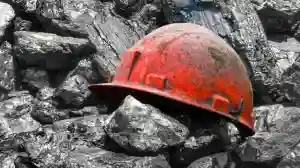The Zimbabwe Diamond Miners and Allied Minerals Workers Union (ZDAMWU) has highlighted that Workers’ Day serves as a reminder of the challenges faced by working people and the poor in Zimbabwe. These challenges hinder sustainable human development.
In a statement seen by Pindula News, the union specifically mentioned the plight of retired mine workers living in poverty, former workers of closed mines being harassed and evicted, and Mbada Diamonds workers who lost employment in Chiyadzwa and are yet to receive their terminal benefits. The union said it remembers the Zimbabwean working class who have fought for a democratic, prosperous, and united nation.
ZDAMWU’s General Secretary, Justice Chinhema said the union understands that workplace struggles cannot be isolated from broader social struggles and that economic justice and equality cannot be achieved without national liberation.
He said they are pushing the agenda of empowering mine workers and ensuring they have living standards that match the value of their work adding that this will lead to real transformation. He said:
This is a day that evokes the memorable thoughts of Karl Marx, who called on workers of the world to unite, for they had “nothing to lose but their chains”. The celebrations that mark 1 May, which are held universally on what some people call Labour Day, or Workers Day lead one to think of the billions of people on this planet who, day in and day out, work to keep the wheels of industry turning – mining, agriculture, the trades and other avenues of working life. This is also a moment to reflect on the inequalities and exploitation which, in various theatres of the world, still grossly prejudice working people in their daily lives and further serve to impoverish the poor especially. To mark this day, we acknowledge that those who celebrated it in the past were committed to achieving a better world, with decent jobs, less hours of work and improved wages.
Workers’ Day is close to the World Day for Safety and Health at Work, which was on April 28, 2023. This day encourages people to prevent work-related incidents and diseases and raises awareness about the magnitude of work-related injuries, diseases, and fatalities worldwide. It is also the day when the trade union movement holds its International Commemoration Day for Dead and Injured Workers to honour victims of occupational incidents and diseases.
Chinhema said in Zimbabwe, an alarming trend shows that almost one miner dies every week, which is concerning. He said it’s regrettable because mines are expected to have the necessary measures and expertise to improve health and safety. In 2020, 182 mineworkers died from 116 mining accidents. However, in 2021, there was a decrease in both accidents and fatalities compared to the previous year, with 121 accidents and 139 fatalities. As of September 30, 2022, there were 125 accidents and 139 fatalities. The largest accident category and the leading cause of fatalities are fall-of-ground accidents, followed by transportation and machinery accidents. More deaths in the industry are due to occupational health diseases than occupational injuries. Chinhema added:
The health impacts are visible only long after the exposure, hence the tendency for miners not to be given the immediate attention they deserve. Exposure to silica dust is the main concern, as it leads to silicosis and, as we all know, that leads to lung cancer. It further predisposes miners to tuberculosis, and TB has thus remained a challenge in the mining industry. HIV/Aids has increased the incidence of TB substantially. Lastly, there is noise exposure, leading to noise-induced hearing loss, as it results in permanent disability and incapacitation…
Today, some mine workers continue to endure harsh working conditions, including, crowded living in dilapidated old houses, inhabitant houses made of corrugated sheets, plastics, timber, and separation from their family members to live in barracks. Even this sector’s commitment to the development of communities where mining is taking place or affected by mining is questionable. This must change- community development must be seen happening.
Chinhema stated that mine workers are vital to any economy and their welfare should be a priority. He said mine workers currently earn very low wages which are not commensurate with the value of production and minerals mined. Therefore, there is nothing to celebrate but instead, efforts should be made towards real transformation.
He said as drivers of economic growth, it’s important to communicate to the government and employers in the sector that true development can only be achieved by empowering mine workers. Chinhema said real economic development is when mine workers are empowered and earn a living wage that reflects the value of minerals mined.

